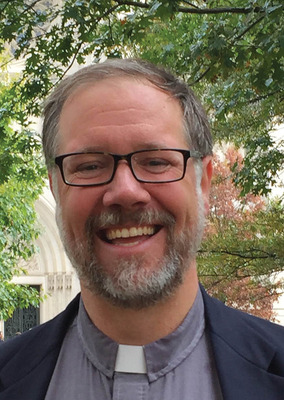Collaboration & New Communities
OBJECTIVE:
Seek collaborative partners and cultivate mutual relationships that deepen our connection to God through worship, formation and outreach. In a spirit of unity and cooperation, foster the development of innovative and inclusive expressions of worship that engage new generations and diverse demographics.
DIOCESAN LEADERSHIP COMMITMENTS:
- Promote a culture of collaboration within and between congregations, diocese and the broader church as well as nonprofit networks.
- Establish communication channels that facilitate dialogue, information sharing, connections to resources and best practices related to our missional priorities.
- Continue to strengthen and deepen the work of our Global Mission Committee, our ties with our two companion dioceses, Botswana and Costa Rica, and celebrate varied historic engagement of congregations in global partnerships.
- Envision and define alternative worshiping communities and work with the chancellor and diocean leadership to revise Canons 20 and 21 to allow for emerging worshiping communities.
- Nourish and equip historic and emerging Black and Latino congregations, worship communities and missional initiatives.
CONGREGATION AND INDIVIDUAL COMMITMENTS:
- Create new and strengthen existing collaborations with other Episcopal congregations, ecumenical and multifaith partners, community organizations, and global missions.
- Cross boundaries to seek out diverse partners who will broaden our understanding of God's mission in the world and deepen our relationships with our neighbors near and far.
- Continuously assess the needs and demographics of the community and discern ways to engage with the evolving local and global challenges and opportunities through partnerships, shared resources, networks.
- Look for opportunities for new worshiping communities and missional initiatives or innovative worship experiences that engage and include diverse populations.
RESOURCES:
- Global Missions
- Companion Dioceses
- Diocese of Botswana
- Diocese of Costa Rica
- Episcopal Asset Map
- Grants and Scholarships
BE INSPIRED:
- All Kinds of Collaboration (Disciple, Spring 2024)
- Holy Spirit, Greensboro: Building a Partnership (Disciple, Summer 2023)
- Many Hands, Amazing Work (Disciple, Winter 2019)
- A Community-shaping Collaboration (Disciple, Fall 2018)
- Know Your Neighbor, Serve Your Neighbor (Disciple, Summer 2018)
WATCH:
Shared at the Special Convention on March 5, 2022, this video provides an overview of what we're trying to accomplish with the priority along with stories of work already happening.
When first shared in August 2021, this priority did not originally contain Goal 4, Global Mission partnerships. Strategies for that goal are in development.
 Canon to the Bishop
Canon to the Bishop
 Mission Strategy Coordinator
Mission Strategy Coordinator
 Canon Missioner for Diocesan Restitution and Reparations Ministry
Canon Missioner for Diocesan Restitution and Reparations Ministry
 Canon Missioner
Canon Missioner
 Canon Missioner for Latino/Hispanic Ministry
Canon Missioner for Latino/Hispanic Ministry
 Transition Ministry Officer
Transition Ministry Officer
 Canon Missioner for Black Ministries
Canon Missioner for Black Ministries
